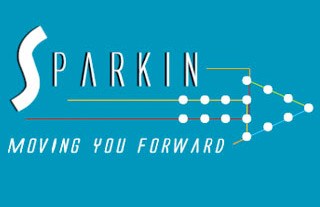
Narrate Newsletter
Topics
- Adaptability (29)
- Barriers to Success (17)
- Career (1)
- Career Optimization (90)
- Career Planning (13)
- Client Side vs Agency Side (7)
- Empathy Award Winners (10)
- Freelancing (6)
- Great Places to Work (4)
- Humor and Music (1)
- Job Searching (35)
- Job Security (23)
- Personal Branding (7)
- Purpose-Driven Brands (5)
- Soft Skills (77)
- Strategic Planning Market (21)
- Strategists (29)
- Trends (11)
- Trusted Advisor (27)
- Uncategorized (4)
- Virtual Work Considerations (3)
- Work Life Balance (32)
- Working Overseas (1)
Do you want to show up more creatively for your clients and your colleagues, your family, and your friends?
Do you want to default to thinking about opportunity versus focusing just on problems?
Discovering Hope is full of proactive steps you can take right now, to achieve a more positive mindset or to help maintain the positivity you already have
Getting Positive reveals that more optimism is close at hand


Soft Skills
Dealing With Self-Doubt
‘Doubt kills more dreams than failure ever will’ (Suzy Kassem)
In an average week I will talk with strategists who, whilst they excel at what they do, have an on-going struggle with confidence in either the value or quality their delivers, or both. Having high standards and pursuing constant improvement is to be applauded. However, in the pursuit of excellence there can be a of perspective about ones ability. In the worst cases over time, one-off doubts can become something more.
‘Our doubts are traitors and make us lose the good we oft might win, by fearing to attempt.’ (William Shakespeare)
Clinical psychologist Ellen Hendriksen defines imposter syndrome (IMS) as
“a pervasive feeling of self-doubt, insecurity or fraudulence despite often overwhelming evidence to the contrary.” Or, at the very least, a feeling of not being worthy.
A range of studies suggest that this is a fairly commonly experienced phenomenon, some suggest as many as 70% of individuals experience IMS at some stage of their career.
Clearly there is a difference between doubting oneself from time to time or lacking confidence versus a psychological phenomenon that arises from an incorrect assessment of ones’ abilities compared to peers. A lack of confidence that exists despite a range of academic and professional accomplishments that illustrate ability and effectiveness. Is this you?
Some of the typical symptoms highlighted by Business Insider:
Focusing on what’s wrong versus what’s wrong versus what’s right; Thinking it’s too easy/anyone can do it; Thinking it has to be difficult to be worthwhile; Believing that what you’re doing is never enough.
If you’re unsure take the test below:
In her article on ‘self-doubt and the confidence spectrum, Lee Lin Yang emphasizes scenarios in which the maximum feelings of self-doubt typically occur, both when an individual uses non-core skills and when working with individuals with greater experience or authority. Whilst the stakes are higher in both scenarios IMS at least in worst case scenarios leads to a lack of confidence which transcends all tasks and interaction, a cloud of uncertainty pervades. “The ensuing self-doubt leads either to avoidance, fear of failure, or it leads to procrastination.” (Leon Seltzer, 2017) It becomes a tightening straight-jacket that prevents an individual achieving that which their talent deserves.
Steps to Understand and Redress the Impact of Impostor Syndrome
Draw a line in the sand – Understand that many others in positions of authority feel the way you do. Consciously decide your narrative is going to change and you are going to make a case in your own mind, for the positive impact you make versus the impact you don’t make!
Self-Awareness/The Questioning Antidote – Examine your self-doubt and understand what your ‘self-critic’ is specifically critiquing with a view to trying to objectively tackle it. Ask yourself, is the critique fair? And…Why am I doubting myself? Is it the comments of others? Because of something that happened, or didn’t? Because of feedback? Certain situations?
Performance Metrics/Information Analysis – Is your internal commentary focusing on a specific performance metric? To improve your confidence levels, you need something specific to address. Have this and you will feel you are not addressing an amorphous monster but a tangible target. Are you doubting your: Technical ability, (or part of it) your social skills, (perhaps worse in different contexts), your ability to deliver a desired result. Bottom line, establish mutually agreed performance metrics with your boss, as these are clear indicators as to your actual effectiveness versus how you feel you’re performing.
Learning versus Performance Mindset ie) Making mistakes is a basis for improvement not self- immolation! And If you didn’t perform to your own standards did you really do as badly as you’d expected (Kim Watson, MD)
Coping Mechanisms/External Support and Validation – Emphasize feedback from others. Seekout colleagues and/or peers to validate who you really are rather than who in your weaker moments you think you are.
Play to your strengths – There will be times when you experience greater degrees of self-doubt than others. When you feel more vulnerable, aim to default to areas of greatest expertise and experience. Protect yourself from downside impact to your confidence. Building your confidence levels will be an iterative process.
Embrace fear – Easier said than done! Understand that your inner critics’ job is to keep you on the straight and narrow. But remind yourself that very often, the straight and narrow is not enough!
For more context and direction on addressing IMS, please click on the attached link: http://bit.ly/2mmHiYc
If anyone is struggling, please contact me and at the very least, I promise to be a good listener.
Impostor Syndrome – Managing Chronic Self-Doubt
Pervasive self-doubt or Impostor Syndrome (IMS) affects at some time or other, a significant portion of the working population.
A condition caused by a range of factors, genetic and environmental in childhood and and beyond, which when experienced, an individual even with a significant professional academic and practical track record, may repeatedly doubt themselves and in so doing hold themselves back from realising their true potential.
Classic symptoms vary but include: Focusing on what’s wrong versus what’s right, thinking what one does is too easy, that anyone could do it, thinking it has to be or feel difficult to be worthwhile and feeling that what your doing is never enough.
Steps to Manage IMS
1. Change your internal narrative from one focusing on weakness to one crediting accomplishment.
2. Self-Awareness – Start asking yourself specific questions to better understand specific areas that your self-critic is focused on.
3. Performance Metrics – Agree specific performance metrics with your boss. These will be clear indicators to your actual effectiveness
4. Learning v Performance mindset – Make learning your focus versus results very often beyond your control.
5. Coping Mechanisms – Emphasize feedback from others to provide feedback to validate and support how you ‘actually’ show up versus how you think you might.
There are many famous high profile individuals that have expressed feelings of chronic self-doubt, even of feeling like a fraud. Know that you are not alone in how you feel.
If for no other purpose, I offer myself as a sounding board for any of you dealing with IMS type symptoms.
Stuart
Articles and commentary that might be of interest…
Confronting Ageism
Age discrimination is real and ingrained in certain industries, such as advertising. That said, when rejection occurs, we shouldn’t assume it’s just about our age.
A regular conversation with individuals feeling frustrated in their search for their next career challenge “Stuart, I’m just not getting considered. I’m pretty sure this is an age thing!” “They said I have too much experience!” What should I do?” “What can I do?”
Age Discrimination Defined:
‘Treating an applicant or an employee less favorably because of his or her age.’ (Equal Employment Opportunity Commission)
Some truths:
In certain industries, such as advertising, it’s endemic.
We are all capable of discrimination and being discriminated against. Is it legal? No. Is it right. No. Is it a reality. Yes.
We discriminate consciously and subconsciously.
Age related discrimination is something we will ‘all’ experience, whether we know it or not.
The older we get and the more experience we have, the more we tend to discriminate/Not have an open mind.
In person age related discrimination may well be greater as age related stereotypes are reinforced – Some people look older than they are
Is what you’re facing actually discrimination based on age?
Be sure that you are not being considered because of your age. It’s conceivable there is another candidate that is better qualified. The classic justification for age-related discrimination is often related to desired experience levels. Too much – ‘Old-age’ discrimination); Too little -(‘young-age’ discrimination) Although of course, you can be an older person and simply not have the required experience.
Age based discrimination rejects what?
Retention and winning of business – The employer believes that relative to other candidates, that you/your experience will be less effective in either retaining or building on existing client business.
Culture – The employer believes that your over or under experience will adversely effect interpersonal dynamics of the existing team and/or culture. I.e. The feeling is that you will on some level be disruptive.
If you are confident of discrimination (legal recourse aside) what can you do?
1. Ensure you are presenting your case optimally – Be sure you are communicating the value you would actually deliver versus the ‘perceived value.’ This said, understand that some potential employers (and clients) have in their mind a belief that a certain age is ‘not for us.’ The reality is:
2. In person meetings are key – If you really are someone that has energy and experience and an ego in check, you may just be the person that will make the previously ‘age’ biased would-be employer reconsider. Why?
3. Money talks – If anyone can understand your combination of experience and energy (versus the perception of someone at your age) and they are focused on building business first, you have a decent opportunity of being hired.
Employer/Hiring Perspective
All employers want to hire in the most time/cost effective way the best individuals needed to build their business. The reality of cost and time pressures means that in hiring candidates, decisions will be made very often to quickly hire capable versus the optimal candidate.
All employers that are building teams, need a range of employees but who they need to hire in terms of experience will depend as much on the existing employee and client mix they have and how they feel this aligns. They may have plenty of ‘you’ already! So, you need to tell a better story and make them see why you’re different to the other ‘yous’.
An Approach to Circumventing Age-Related Stereotypes and Maximizing Your Success
1. Take Responsibility – Discrimination is real. That said, many I speak with do not take responsibility for giving themselves the best chances to actively considered.
2. Understand the business and culture of the organization where you’re are applying for a job – Very often individuals haven’t done enough homework. Obtaining a clear understanding of the hiring company, its’ culture, where it makes money now and might in the future allows you to make (or know you can’t) a compelling case that far from your age being a reason that would hold the hiring company back, you are the right person to propel them forward.
3. Be The Anti-Cliché – Don’t live the clichés of ‘being old.’ Key, always assume (despite all your experience) you know a little less than ‘nothing’ every day. Have an open mind/Be keen to learn.
The Future
We have an ageing population which might indicate greater product/service opportunity for more mature employees. At the same time, there is a real shortage of experience which gets greater each year. And, societal obsession with youth is if not being changed, it’s being tempered and with it will the black and white perceptions of what old and young means. And, digital is no longer the domain of just the young.
For more information and articles on the subject follow the link http://bit.ly/2SC9CSD and feel free to sign up to the ‘Narrate’ newsletter.
Miami Ad School, Parkin ‘Empathy Award’ Winner
The ability to work seemlessly with creatives or for that matter clients, (or consumers) starts with a ‘determination? and/or ability’ to effectively understand others. This ’empathetic’ gene is key for effective creative strategists.
A Huge congratulations to Danilo Prado Alves, the newest Parkin ‘Empathy’ Award winner of $1500 (plus $500 coaching).
The award is judged by the students on the course as well as the strategists that teach the course; (Not the school; Not me)
It was also a pleasure for me to sit down with each of the other fifteen students participating in the Bootcamp.
#MiamiAdSchool#ParkinPrizeWinner#Empathy#AccountPlanningBootcamp#LifeSkills#EmotionalIntelligence#DerekParkinAward#Winner#CareerOptimisation#Advertising#SparkinCoaching#Careers#KnowYourAudience#ActionNotWords#ConnectWithPeople#BetterLife #LifeSkills #SparkinSearch#CreativeStrategy#AccountPlanning#Diversity#Meritocracy#Inclusive
Excessive Stress – We’re All Vulnerable
Experiencing excessive stress is commonplace in today’s world. But, it can feel like one of the loneliest places to be.
Stress shows up for different reasons, a number expounded in the attached video http://bit.ly/2YA4vUC and covered in most recent blog http://bit.ly/2VTPpwd
What’s key for you? Knowing yourself/recognising your areas of vulnerability and, planning to work to your strengths.
What’s also really important for you, knowing how to effectively manage the stress you do experience.
While there are a number of suggested palliatives for stress, key is that you don’t bottle things up and ‘communicate.’ And finally remember, you ‘always’ have options and you are ‘never’ truly alone.
All the best,
Stuart
PS. Recent SPARKIN blog on Stress at work http://bit.ly/2VTPpwd
Articles about recognising the signs of stress.
- https://www.webmd.com/balance/stress-management/stress-symptoms-effects_of-stress-on-the-body#1
- https://trans4mind.com/counterpoint/index-communication-relationships/uebergang2.shtml
Articles about preventing stress.
- https://www.apa.org/helpcenter/work-stress
- https://www.health.harvard.edu/mind-and-mood/best-ways-to-manage-stress
- https://www.sharecare.com/health/stress-reduction/effective-communication-reduce-my-stress
Articles about coping with stress.
Biased Thinking – The Anti-Strategist
Judging a book by its cover is not a smart thing to do but we all do it, subconsciously if not consciously.
‘The eye sees only what the mind is prepared to comprehend’ (Henri Bergson)
Effective strategists require many skills but if those they interact with don’t have a fair chance of being heard, they will not accurately represent them; They will fail to be the ‘voice of the consumer.’
We are all biased about everything, however open mnded we think we are. We are even biased about ourselves.
https://www.youtube.com/watch?v=Bq_xYSOZrgU
So how do we get an open mind and escape the bonds of our upbringing and past experience?
A few potential steps:
– Understand where your biases lie and recognise them..
– Be determined to challenge these biases.
– Take steps to actively compensate for these biases.
Finally, have a look at some articles to help recognise and to compensate for your biases.
All the best,
Stuart
- Articles and commentary that might be of interest…
- Articles about our biases and how to recognise them
- The difference between open and closed-minded people
- Understanding prejudice. How it forms and how to prevent it
- Why do prejudice and discrimination exist
- Prejudice comes from a basic human need
- Articles about how to ensure ‘neutral’/Open listening
- A new way to become more open-minded
- Prejudice and discrimination






